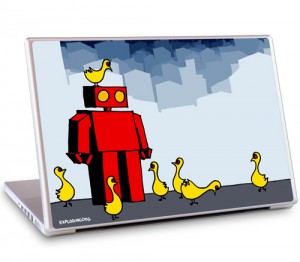
How much do you know about your customers…I mean really know? Get beyond the demographics, beyond the statistics, beyond the purchasing numbers. How much do you know about how your customers interact with their everyday world? And more importantly for you, how do your customers interact with their world using your product or service? It’s in understanding this interaction where your brand can go from ordinary to extraordinary.
Enter anthropology and the expertise we anthropologists offer. The way we humans behave is deeply rooted in our everyday culture. It influences how we make sense of our reality. It also explains why we consume what we do and what we’re ultimately trying to communicate to others around us. Because sense-making is largely a symbolic process at a cultural level, anthropology is ideally positioned to help explain the relationships customers have to a brand. In other words, if you want to know more about what your customers really think and actually do, bring in an anthropologist.
As humans, we interact with things in order to make sense of our world (if you’re unsure about this, watch a young child for a few minutes). We’re also trying to make sense of ourselves and our identity in relation to others around us. I’ll even argue that most of us want the businesses and brands we interact with to understand us better and help us in our sensemaking process.
So here’s my question for you: what is your business doing to understand your customers and help them make sense of their world through their interactions with you?
photo credit: courtneybolton (via Flickr)




Hi Chris,
I’ve spent a great deal of time and energy thinking about sense-making practices so your points resonate with me, though I prefer to think of them as sociocultural in nature rather than cultural per se. Making sense is a symbolic process, but I’d suggest that it is accomplished through shared practices and experience (as your point about identity implies). The distinction is important since research increasingly depends on consumers to act as observers of themselves and others in marketing and design research.
Larry R. Irons, PhD
Principal
Customer Clues LLC
Larry, thanks for adding your insight. Totally agree with each of your points. Symbolic and interpretive anthropologies focus heavily on examining shared practice (which I didn’t note very well here, so I’m doubly appreciative for your additional thoughts). I think – if anything – it shows how much depth there is to explore in nearly any consumer experience…and how much brands can learn about their place within the larger marketplace. Cheers! ~Chris